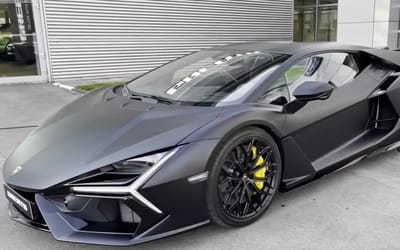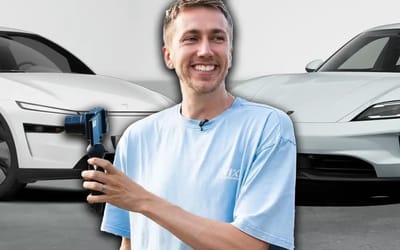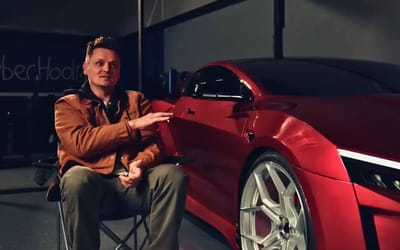Futuristic flying boat boosts range by up to 370 miles thanks to hydrogen-electric powertrain
- Swiss-based aviation start-up Jekta has announced a partnership with ZeroAvia to create a hydrogen-electric powertrain
- The company says it will boost flight range by up to 600km (372 miles) and payload up to a tonne
- The new power system will also lower operating and maintenance costs
Published on Jul 29, 2024 at 3:59 AM (UTC+4)
by Claire Reid
Last updated on Jul 29, 2024 at 11:24 AM (UTC+4)
Edited by
Tom Wood
The creators of this futurist-looking amphibious aircraft have partnered with a fuel cell technology company to introduce a hydrogen-electric powertrain that will boost its flight range by up to 500k to 600km (310 miles to 372 miles) and payload up to a ton.
Swiss-based aviation start-up Jekta’s Passenger Hydro Aircraft Zero Emission 100 – or PHA-ZE 100 – was initially conceived with a battery-electric powertrain.
But last week (July 22) ZeroAvia announced its fuel cell power generation system (PGS) had been selected to ‘demonstrate the concept of a fuel cell variant of its electric amphibious flying boat design, with a view to line-fit of the system as the PHA-ZE 100 variant comes to market’.
DISCOVER SBX CARS: The global premium car auction platform powered by Supercar Blondie
The new hydrogen fuel-cell system will boost range

Jekta said it is committed to ‘exploring all options’ that will increase range and payload in the ever-evolving battery market.
As well as improved range and payload, ZeroAvia says a hydrogen fuel system will lower operating and maintenance costs.
Jekta is not the only aviation company working on hydrogen engines.
Aviation giant Airbus successfully completed testing of its ‘iron pad’ hydrogen fuel cell system earlier this year and shared plans to test it on an Airbus A380 by 2026.
It will also be a greener option for travel

ZeroAvia is already flying a prototype of its entire hydrogen-electric powertrain (ZA600) in a 19-seat testbed aircraft.
“We are noting a resurgence in the seaplane market, and we’re excited to work with an innovative company that is leading and shaping the future of amphibious aviation,” ZeroAvia CEO and founder Val Miftakhov said in a statement.
“We see the huge potential for creating zero-emission amphibious flights, and we believe hydrogen-electric propulsion will play a big role in this market.”
Jekta CEO George Alafinov said the partnership will allow ‘potential operator clients the choice of two fuel sources’.
“The hydrogen system delivers a viable alternative to electric battery power that promises a significant increase in the range of our PHA-ZE 100, which will suit operators serving longer regional routes,” he said.
‘In contrast, the battery power option will suit shorter-range missions and operators flying in locations where electric power is more cost-effective and accessible.”

Claire Reid is a journalist who hails from the UK but is now living in New Zealand. She began her career after graduating with a degree in Journalism from Liverpool John Moore’s University and has more than a decade of experience, writing for both local newspapers and national news sites. Claire covers a wide variety of topics, with a special focus on cars, technology, planes, cryptocurrency, and luxury.




